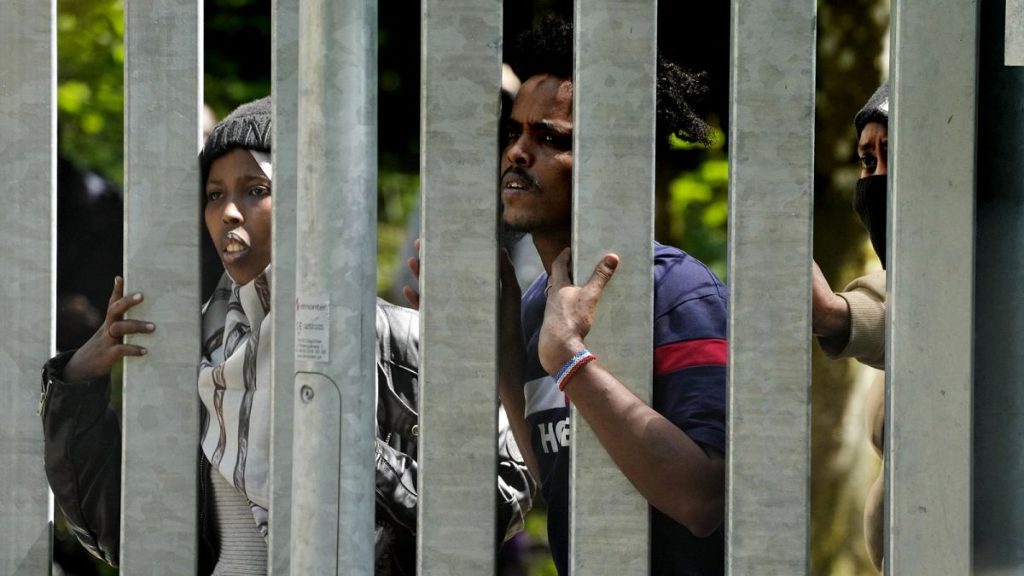The European Commission has issued new guidelines that permit member states facing weaponized migration flows orchestrated by Russia and Belarus to temporarily suspend certain asylum rights. This marks a significant shift in the EU’s stance on migration and asylum, reflecting a growing right-wing influence on policy. The guidelines, while emphasizing the exceptional nature of such measures, effectively endorse actions previously criticized as unlawful by human rights organizations. This new framework raises serious concerns about the erosion of fundamental rights and the potential normalization of emergency measures at EU borders.
The Commission’s approval applies to Poland’s controversial plan to suspend asylum rights in response to the migrant influx facilitated by Russia and Belarus at its eastern border. Similar measures adopted by Finland, allowing for the rejection of asylum claims and migrant pushbacks, also fall under these guidelines. The Commission argues that such suspensions are permissible if proportionate, temporary, and strictly necessary to address the security threat posed by Russia and Belarus. This rationale represents a stark departure from the Commission’s initial reaction, which was to caution Poland against violating its obligation to provide access to asylum procedures. The shift underscores the growing political pressure within the EU to prioritize border security over established human rights principles.
The change in the Commission’s position follows a summit of EU leaders where Polish Prime Minister Donald Tusk successfully argued for his plan, framing it as a matter of national security. The summit’s conclusions reflected this perspective, paving the way for the new guidelines. These guidelines aim to provide member states with greater flexibility in managing migration flows manipulated by Russia and Belarus as a form of hybrid warfare. This tactic, initiated in 2021 following contested elections in Belarus, involves directing migrants toward the EU’s eastern borders to destabilize the bloc. While the initial surge has subsided, the flows continue intermittently, aided by Russia in retaliation for EU sanctions related to the war in Ukraine.
The current situation at the EU’s eastern border is characterized by a significant rise in illegal arrivals, particularly at the Poland-Belarus border. The Commission accuses Russia of providing visas and equipment to low-income migrants, further escalating the security threat. Frontex data reveals a continued influx of migrants from war-torn countries like Ethiopia, Somalia, Eritrea, and Syria, making deportations challenging. While Ukrainian refugees constitute the largest group crossing the border, they are granted immediate protection under separate EU legislation. This complex situation has created a sense of urgency and contributed to the EU’s willingness to consider exceptional measures.
The new guidelines’ ambiguity regarding migrant pushbacks has sparked controversy. Despite international and EU law prohibiting the practice, the Commission avoided explicitly condemning it. This reluctance aligns with the broader shift toward stricter border control measures. The Commission’s vague response to questions about pushbacks reflects a growing acceptance of such practices, even as human rights organizations document their continued occurrence, including reports of violent expulsions by Polish border guards. The Commission’s emphasis on security considerations over migration policy highlights the changing priorities within the EU. While the guidelines stipulate adherence to the principle of non-refoulement, which forbids returning migrants to places where they face persecution, they lack clarity on whether returning migrants to Belarus constitutes a violation. This ambiguity leaves open the possibility of migrants being subjected to harsh conditions and abuse upon return.
The lack of clarity in the new guidelines extends to the fate of migrants denied asylum and entry into the EU. The Commission has not specified procedures for these individuals, raising further concerns about their well-being and potential vulnerability to human rights violations. Human rights organizations have criticized the Commission’s willingness to tolerate practices that circumvent established legal frameworks, arguing that exceptional measures risk becoming permanent fixtures of border control. The normalization of emergency measures at EU borders poses a serious threat to fundamental rights and the international legal framework protecting asylum seekers. The potential for these exceptional circumstances to become the new norm is a significant concern, potentially eroding the EU’s commitment to human rights and international law.














